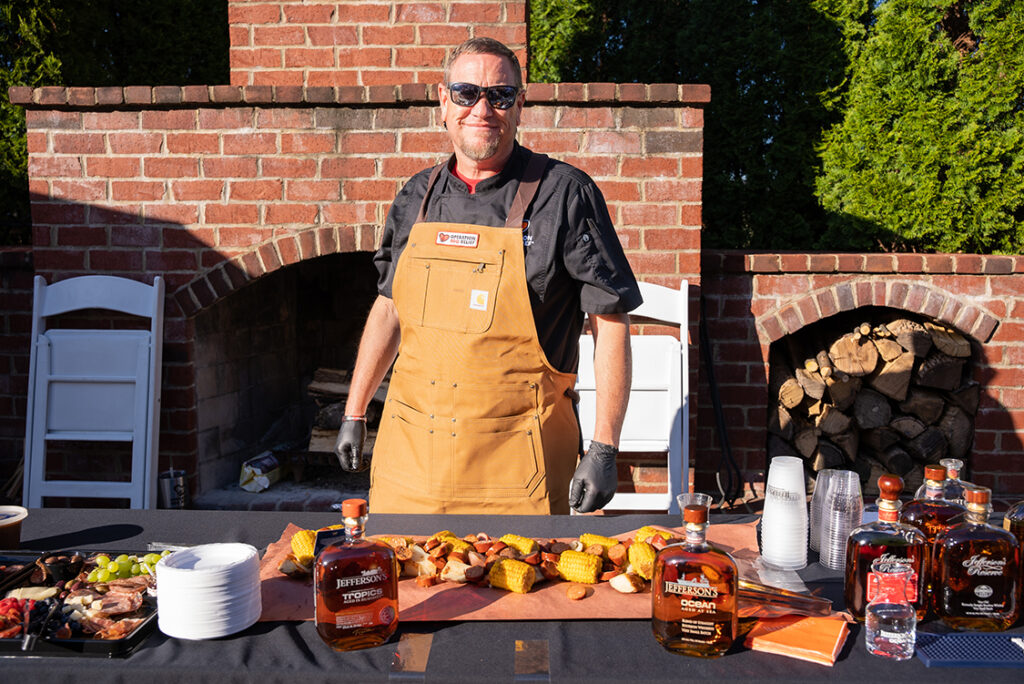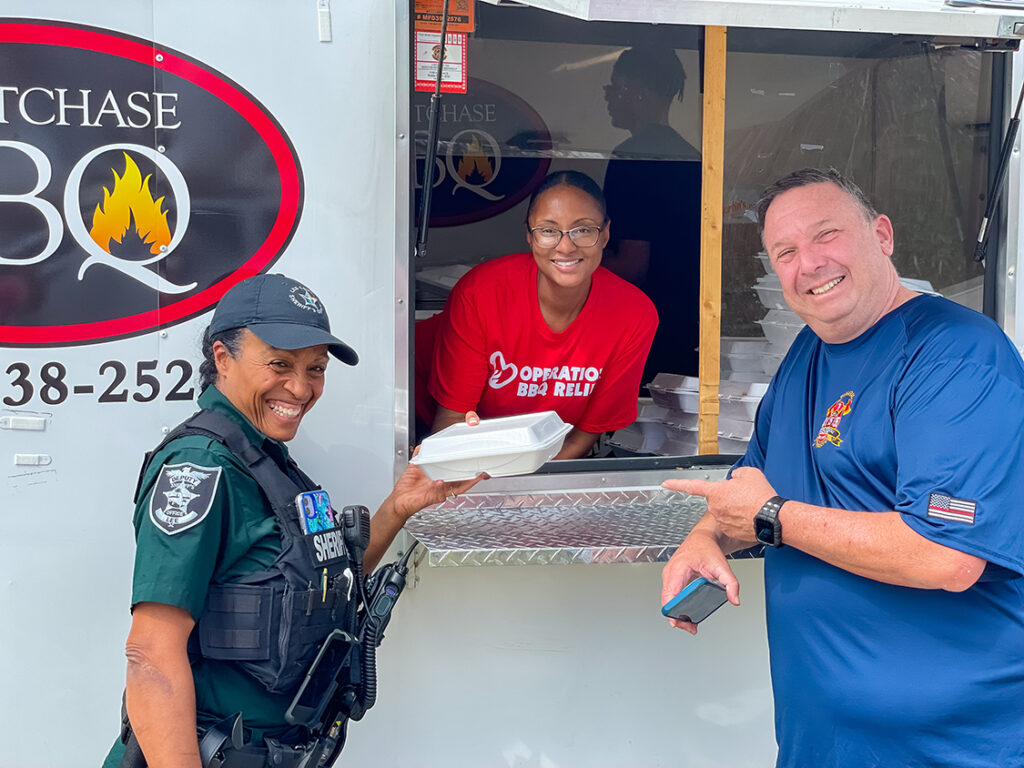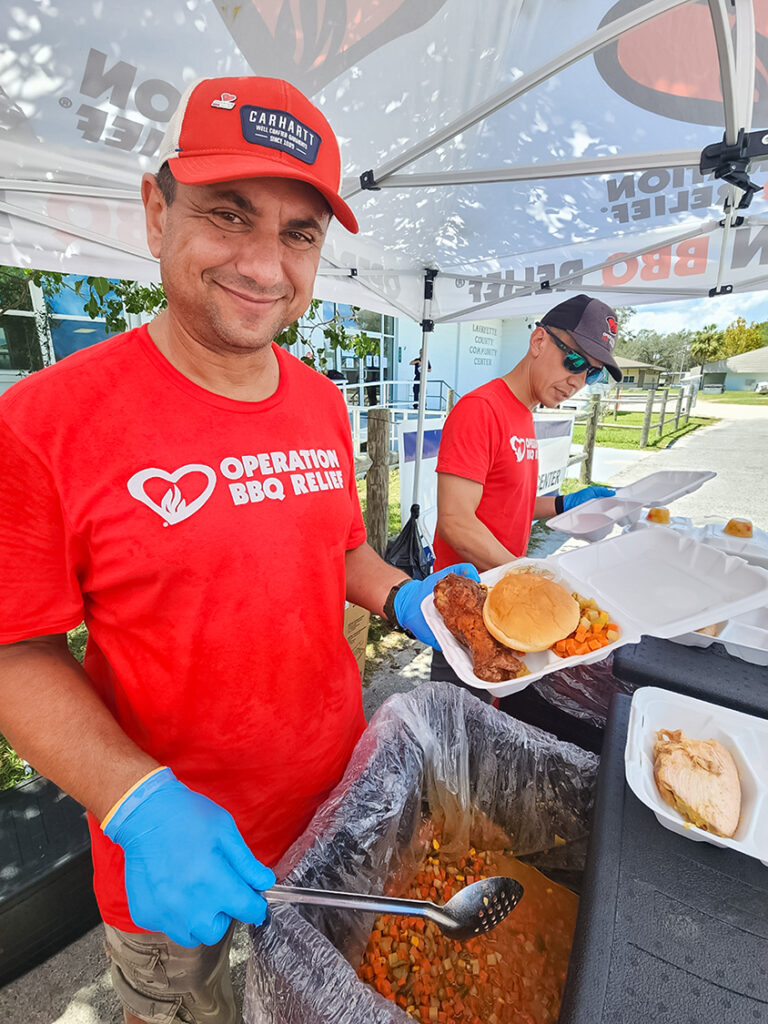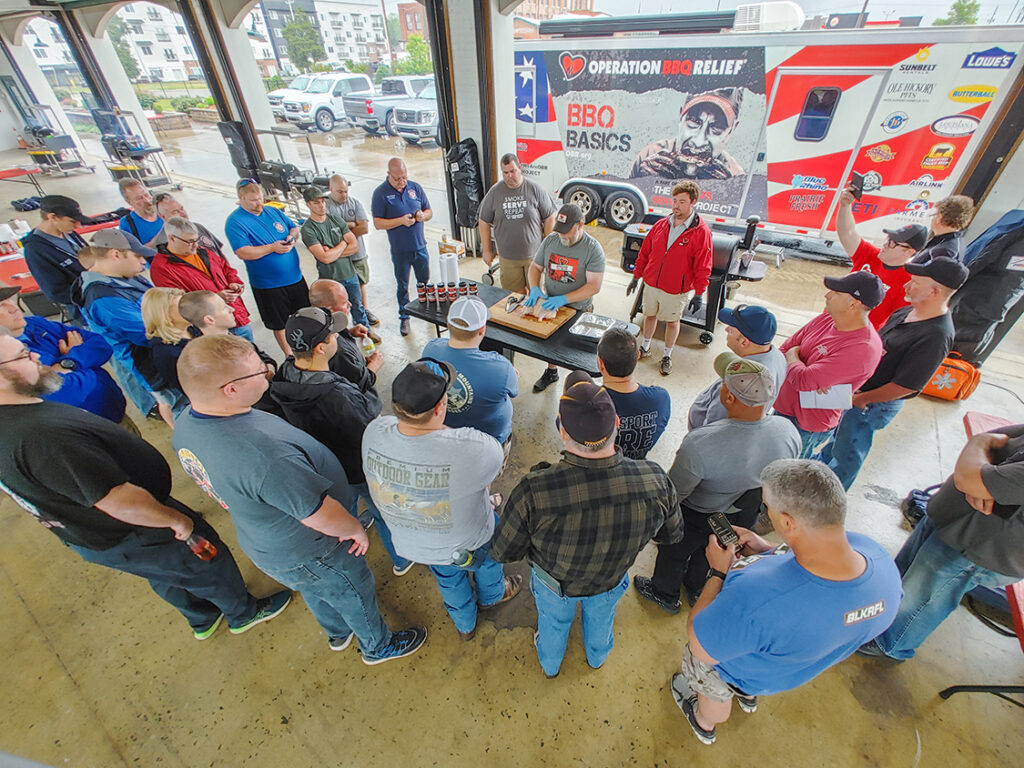Operation BBQ Relief serves communities in need with hot meals and helping hands
By Sara Perez Webber

Stan Hays tells volunteers they’ll “find their ‘why’” when they help people in need through Operation BBQ Relief.
“When you hand that meal to somebody, and they literally are in tears thanking you for something as simple as a pulled pork sandwich, when you know they’re probably going through the worst day of their life, that is the most humbling,” says Hays, CEO and cofounder of the nonprofit organization.
Since its founding, Operation BBQ Relief has served more than 11 million hot meals to those in need, deploying to 106 disaster-affected communities in 36 states and the Bahamas. With a database of 18,000 volunteers in every state, including about 700 who are very active, the organization aims to respond as quickly as possible after disaster strikes, helping people when their need is the greatest.
Before Hurricane Ian made its deadly landfall in Southwest Florida in September 2022, a team from Operation BBQ Relief pre-staged in Georgia, about an hour north of the state border. As a result, they were able to deploy the day after the hurricane hit. As residents were coping with the destruction of property and the loss of electricity, Operation BBQ Relief served them more than 845,453 hot meals over 38 days from the distribution site it set up in Port Charlotte—its biggest deployment to date.

Pitmasters Pitching In
Hays found his purpose, or his “why,” in May 2011 after watching on television the devastation caused by a deadly tornado in Joplin, Missouri, about two-and-a-half hours from his home. He felt helpless until his wife came up with an idea—why didn’t Hays, who worked in the insurance industry and competed in barbecue battles on the weekends, round up his pitmaster friends and go feed people in Joplin?
Hays reached out to his mentor in competition barbecue, Jeff Stith, who recruited others through Facebook. By the next day, competitive pitmasters from eight states were on the ground in Joplin. They served more than 120,000 hot meals to people in the community over 13 days—and Operation BBQ Relief was born.
“Instead of competing against each other, we used our passion for barbecue to cook for the community,” says Hays.

When tired, hungry people in a disaster zone hear that Operation BBQ Relief has arrived, some initially think “it’s a couple of barbecue guys sitting out on the corner with their Weber grills,” says Hays, who has been the group’s full-time CEO for six years. Yet Operation BBQ Relief has the capacity to serve 65,000 meals a day, setting up its battalion of smokers—which can each cook 2,000 pounds of meat—in an area that could cover two football fields.
“We use our smokers as giant ovens,” says Hays, noting that the organization relies heavily on pork and poultry, due to the cost of beef. “We do a lot of pulled pork and pork loin, because they’re both large cuts of meat that are very cost-effective.” So volunteers may serve pulled pork sandwiches one day, teriyaki rice bowls the next, followed by pork loin in gravy.
Serving When It’s Needed Most
Whatever is on the menu for the day, Hays says it’s heartwarming to see recipients’ reactions. “When people come and pick up meals, they see the outpouring of support for their community through food, and the love that comes with it,” says Hays, who calls barbecue “the quintessential comfort food.”
Operation BBQ Relief—which relies on corporate sponsors and individual donors for its equipment and supplies—has expanded its mission since its 2011 founding. To make an impact year-round, it launched The Always Serving Project in 2019, which teaches volunteers—especially members of the military, veterans and first responders—BBQ skills and helps connect them with communities in need.

Last year saw the opening of Camp OBR, a 190-acre retreat on the Lake of the Ozarks that’s designed as a healing place for families of first responders, veterans and military members who are recovering from physical and emotional injuries.
In all its programs, the organization aims to deliver the healing power of barbecue. “Food’s the greatest unifier in the world,” says Hays. “It has the ability to bring people together.”
To learn more about, donate to or register as a volunteer for Operation BBQ Relief, visit operationbbqrelief.org.










